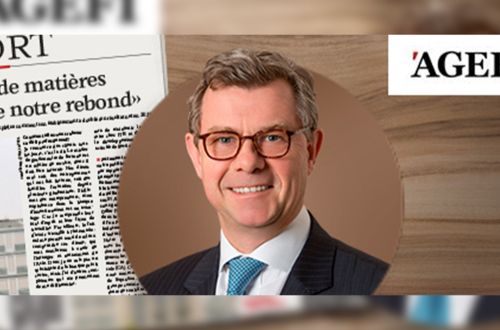Private Banks set high standards
Contribution of Isabelle Jacob Nebout, Head of Wealth Management at Indosuez in Switzerland, for Finanz und Wirtschaft magazine.

Future bankers must understand their clients' world well, build networks and keep their financial knowledge up to date.
Low interest rates, eroding margins, an increasing density of regulation and the rapid digitalisation of services.
The banking business and especially Wealth Management are under pressure. Private banks must therefore regularly reinvent themselves, constantly develop their skills and adapt to new trends.
In cross-border wealth management, Swiss banks currently have a market share of around 25%. In addition to the challenges described above, they are confronted with the increasing demands of a rapidly growing number of very wealthy clients. These clients increasingly require advice from an alter ego, a sparring partner who discusses with them on an equal footing. Bankers must therefore increasingly understand the world of their clients and their activities, while at the same time acquiring comprehensive know-how in various areas of investment banking such as corporate law or M&A. This is one of the reasons why building up a comprehensive network of experts around the needs of clients is one of the most important tasks of a banker and will develop into a real competitive advantage.
Competences in ESG are necessary
Also, career starters such as bankeress or banker must acquire comprehensive knowledge in the areas of finance, tax, compliance, planning and credit structuring. In addition, they must be able to deal with new topics. These include, in particular, responsible and sustainable investments according to ESG criteria.
The Swiss financial centre took up this development some time ago and is striving for a top position in this area as well. The efforts made by the sector, the growing number of so-called green investments and the importance that clients attach to the impact of their investments in environmental, social and governance matters are proof of this. The inclusion of ESG solutions today is a necessity when it comes to managing and preserving wealth.
As we look at the new generation of bankeresses, we note with pleasure that they have a healthy mix of hard and soft skills. Such personal skills are useful, indeed indispensable, as they, as well as their male colleagues, increasingly assume the role of a conductor when advising clients, who, depending on the client needs identified, must call upon interdisciplinary teams and specialists and coordinate their collaboration.
Nevertheless, the profession of a banker will continue to be strongly influenced by people in the future, where relationship and trust are central. While in the past, however, the performance of bankers was often judged by quantitative measures, e.g. the amount of assets under management or the returns achieved, qualitative aspects of client relationships are now becoming increasingly important. Clients also appreciate the fact that "their" banker, in addition to his role as an intermediary of banking services and solutions, has a network that they can use for their own business.
Bankeresses have an advantage
Tomorrow's bankers therefore need to maintain and develop their contacts both virtually and traditionally, using complementary and intelligent CRM and analysis tools. Language skills, emotional intelligence and a mastery of socio-cultural codes and behaviours play an important role in building and maintaining a personalized and long-term relationship with clients and their families. In this domain, female bankers have a slight advantage due to their on average more pronounced empathic abilities, but also because the number of wealthy women is increasing worldwide.
In order to meet the increasing demands of the banking business, future bankers need a variety of qualities: understanding, structuring, innovating, planning, selecting, negotiating and managing. All with a view to sustainability and the consideration of customer interests.
Published in Finanz und Wirtschaft special «Financial career» dd. 07/11/2020
November 16, 2020




